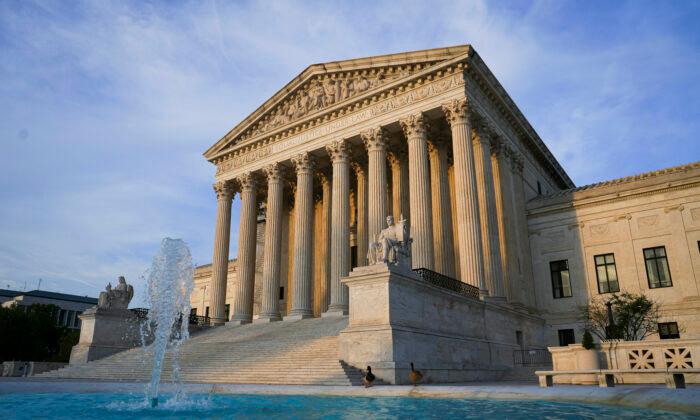The U.S. Supreme Court on June 26 declined to hear the defense by a North Carolina public charter school that was blocked from requiring female students to wear skirts in school.
The justices turned away an appeal from the Charter Day School in Leland, North Carolina, and left in place a decision by a lower court that the dress code discriminated against students based on gender and violated the equal protection clause of the 14th Amendment.
At issue in the case was whether Charter Day School, which offers a “traditional-values-based education” to students from kindergarten to Grade 8, was subject to the Constitution’s equal protection clause when it enforced the skirt policy.
Lawyers for the parents argued that the skirt requirement was rooted in gender stereotypes and violated the 14th Amendment. Under school policy, boys may wear pants or shorts.
Ria Tabacco Mar, an attorney with the American Civil Liberties Union, who represented the three students and their parents or guardians who sued the school, hailed the court’s action.
“Girls at public charter schools have the same constitutional rights as their peers at other public schools - including the freedom to wear pants. We will continue to fight for all girls to learn in safe and equal schools,” she said.
A Matter of Whether Charter Day School Is a State Actor
The Constitution’s equal protection guarantee only covers public, government action, not private organizations. Charter schools in North Carolina are tuition-free, open to attendance by all, and receive state funding for each student. They are run by private, nonprofit corporations rather than a public school district.The plaintiffs sued under a federal law commonly known as Section 1983 that allows individuals to take state officials to court for alleged violations of their constitutional or statutory rights. Charter Day School defended against the parents’ lawsuit by claiming it is not subject to the equal protection guarantee because it is a private actor fulfilling a contract with the state of North Carolina, not a public entity, and therefore cannot be sued under Section 1983.
The Richmond, Virginia-based 4th U.S. Circuit Court of Appeals in 2022 ruled that charter schools in North Carolina are “state actors” because they are publicly funded, their employees are considered public school employees, and the state has delegated to them a duty to educate students. The 4th Circuit then found Charter Day School’s dress code unconstitutional.
“Innovative programs in North Carolina’s public schools can and should continue to flourish, but not at the expense of constitutional protections for students,” Judge Barbara Keenan wrote.
In its appeal, the school argued the 4th Circuit’s decision undermines charter schools by treating “private operators as the constitutional equivalent of government-run schools, squelching innovation and restricting parental choice.”
Lawyers for the school said the lower court “unleashed” “numerous harms to charter school innovation and even farther-reaching evils.” Reversing the decision would “safeguard educational choice in states that do not impose constitutional requirements on charters.”
Asked by the Supreme Court to weigh in on whether or not to hear the case, President Joe Biden’s administration filed a brief urging the justices to deny the school’s appeal.




